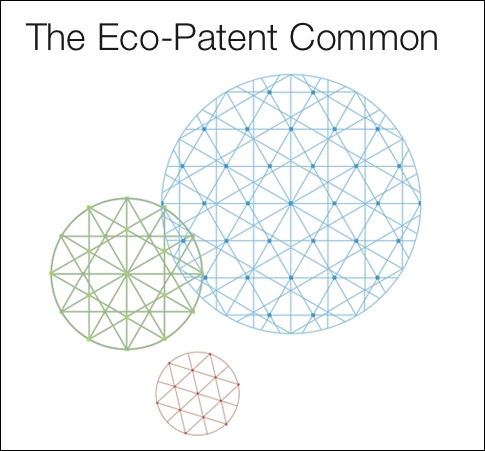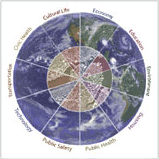You are here
Eco-Patent commons

Two heads are better than one, but nine are even better. Nine businesses have agreed to participate in the Eco-Patent Commons, a first-of-its-kind not-for-profit organization which enables companies to pledge environmentally-beneficial patents to the public domain. The patents can then be used by anyone free of charge. The goal of the project is to establish a collection of environmentally protective patents which can be used to spread, develop, and improve methods for protecting the environment. This revolutionary idea does not aim to undermine business interests of its parent companies, but instead extracts greater value of something that would only have been a marginal revenue source through liscensing. Similar concepts have already proven successful in the case of the software industry.
* The project was launched by IBM, Nokia, Pitney Bowes and Sony in partnership with the World Business Council for Sustainable Development (WBCSD) in January 2008.
* Since then, Bosch, DuPont, Ricoh, Taisei, and Xerox have joined the initiative.
Sharing knowledge and technology that protect the environment is one way to address a wide range of challenges and threats to our planet. One vital way to share such knowledge and technology is through making patented technology available. Yet, to date, there has been no organized effort to make patents available, without royalty, to help enable the world community to reduce waste, pollution, global warming and energy demands.
The Commons concept recognizes that some patents that provide environmental benefit may represent the jewels of a company's kingdom. Asking an enterprise to relinquish such key assets is not the objective of the Commons.
However, leading businesses may hold some patents that provide environmental benefit and do not represent an essential source of business advantage for them. Though these patents may provide nominal license or exclusivity potential for companies, they may provide greater value in a public commons.
As has been demonstrated by the open source software community, the free sharing of knowledge can provide a fertile ground for new collaboration and innovation. Sharing environmental patents can help others become more eco-efficient and operate in a more environmentally sustainable manner — enabling technology innovation to meet social innovation.
Eco-Patent Commons
World Business Council for Sustainable Development
1744 R Street NW
Washington, DC 20009
http://www.wbcsd.org/
- Log in to post comments



